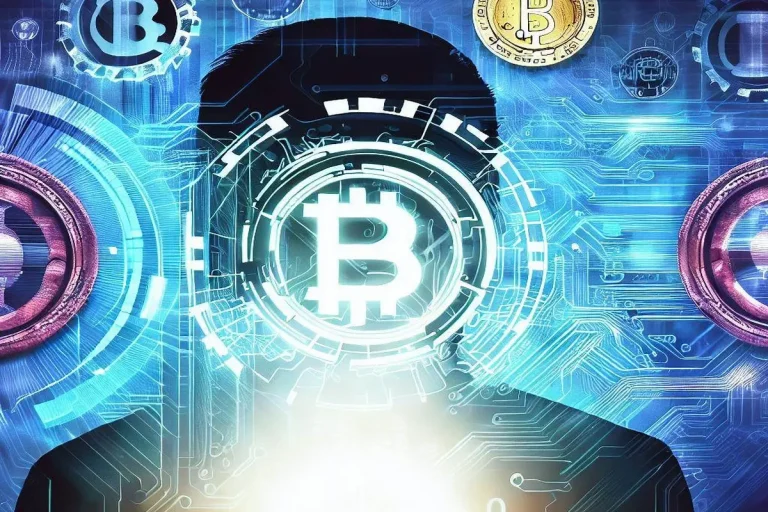Cryptocurrency and Decentralization

Cryptocurrency and Decentralization: The Future of Money and Power
In the past decade, cryptocurrency has exploded onto the global financial scene as a revolutionary new form of digital currency.
Based on decentralized networks and cryptographic technology, cryptocurrency has the potential to upend traditional financial systems and change the way we think about money and power.
At its core, cryptocurrency is a digital asset that uses cryptography for security and operates on a decentralized network.
This means that it is not controlled by any central authority, such as a government or bank, but rather is decentralized and distributed among a network of users.
Cryptocurrencies are often referred to as “virtual” or “digital” currencies, but they are much more than that.
They are a decentralized means of exchange that utilizes advanced cryptographic techniques to secure financial transactions and to verify the transfer of assets.
What is Decentralization?
Decentralization is a key concept in the world of cryptocurrency.
It refers to the distribution of power and control among multiple parties, rather than being concentrated in the hands of a single entity.
In the traditional financial system, power is centralized in the hands of banks and governments, which control the issuance and circulation of money.
In contrast, cryptocurrency operates on a decentralized network, with transactions being verified and recorded on a public ledger called the blockchain.
The blockchain is a decentralized and distributed database that keeps a record of all transactions on the network. It is secured through cryptography and is resistant to tampering and censorship.
The Benefits of Cryptocurrency and Decentralization
There are many benefits to using cryptocurrency and decentralization. Some of the most notable include:
- Fostering financial inclusion: Cryptocurrency allows individuals to participate in the financial system even if they do not have access to traditional banking services. This is especially important for people living in underbanked or unbanked areas, as well as for individuals who may have been denied access to traditional financial services due to their credit history or other factors.
- Providing security and privacy: Cryptocurrency transactions are secured through cryptography, which makes them resistant to fraud and tampering. In addition, transactions on the blockchain are recorded anonymously, which provides a level of privacy that is not possible with traditional financial systems.
- Reducing transaction fees: Cryptocurrency transactions often have lower fees than traditional financial transactions. This is because they do not involve intermediaries such as banks, which can charge fees for their services.
- Eliminating the need for intermediaries: Decentralization allows individuals to conduct transactions directly with each other, without the need for intermediaries such as banks or payment processors. This can lead to faster and more efficient transactions.
- Creating new opportunities for innovation: The decentralized nature of cryptocurrency allows for a wide range of applications beyond just financial transactions. For example, Ethereum, a popular cryptocurrency, has a platform that enables the creation of decentralized applications (DApps), which can be used for a wide range of purposes such as supply chain management, voting systems, and more.
Challenges and Risks of Cryptocurrency and Decentralization
While cryptocurrency and decentralization offer many benefits, there are also challenges and risks that need to be considered. Some of the most significant include:
- Lack of regulation: Cryptocurrencies are not regulated in the same way as traditional financial institutions, which can lead to legal, security, and financial risks.
- Volatility: The value of cryptocurrencies can fluctuate widely in a short period of time, which can result in huge losses or gains for investors.
- Security: As cryptocurrencies are based on blockchain technology, they are vulnerable to hacking and cyber attacks, resulting in the loss of user funds.
- Scalability: The scalability of cryptocurrencies is still an ongoing issue, with some networks experiencing slow transaction times and high fees.
- Adoption: Despite the increasing adoption of cryptocurrencies, there is still a lack of widespread adoption in the mainstream, which can lead to limited use cases and value.
- Centralization: While cryptocurrencies are often seen as a decentralized alternative to traditional financial systems, the concentration of mining power and ownership of coins in a few hands can lead to centralization.
- Legal challenges: Cryptocurrencies operate in a legal gray area in many countries, with some jurisdictions outright banning them or imposing strict regulations that limit their use and growth.
Conclusion
Cryptocurrency and decentralization are transforming the way we think about money and power.
While there are challenges and risks to consider, the potential benefits are significant and could have far-reaching impacts on the global financial system.
As the use of cryptocurrency and decentralization continues to grow and evolve, it will be important for individuals and organizations to stay informed and educated about these developments.
By understanding the underlying technology and potential risks and benefits, we can make informed decisions about how to best utilize these innovations for the benefit of society.
Overall, it is clear that cryptocurrency and decentralization are here to stay and will continue to shape the future of finance and technology.
Whether you are a seasoned investor or just starting to explore the world of cryptocurrency, it is important to stay up to date on the latest developments and think critically about how these technologies can be used to improve our lives and create a more equitable and efficient world.







